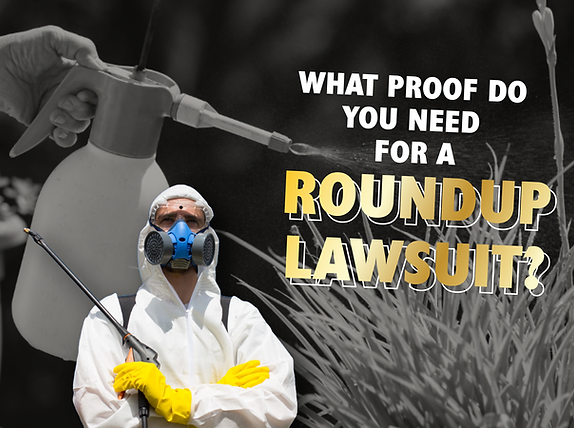If you’ve been following the Roundup cancer lawsuit but find yourself in the dark about the specifics, you’re not alone. The legal battle surrounding this popular weed killer has garnered widespread attention, making it crucial for those potentially affected to comprehend the details. Let’s delve into the nuances and address common questions, focusing on the evidence required for a Roundup lawsuit.
Overview of the Roundup Mass Tort Case:
The Roundup lawsuit centers around Roundup, a widely used herbicide employed for weed control. The primary active ingredient in Roundup is glyphosate, and the controversy arises from claims that prolonged exposure to glyphosate may elevate the risk of developing cancer.
Who is involved in the Roundup lawsuits?
Numerous individuals are involved in these cases, particularly those who have used Roundup extensively and subsequently developed health issues like non-Hodgkin’s lymphoma. These individuals are coming together to file lawsuits against the manufacturer. The allegation is that the company failed to sufficiently warn users about the potential health risks associated with the product.
Many of those involved in the roundup lawsuit include agricultural workers and individuals maintaining lawns and gardens. Despite the claims and lawsuits, Roundup remains on store shelves, raising concerns about ongoing issues.
Qualifying Factors for Inclusion:
For an individual to qualify for a Roundup lawsuit, specific criteria must be met:
Documented Roundup Use:
Individuals should have a documented history of using Roundup as part of their weed control practices.
Diagnosis of Non-Hodgkin’s Lymphoma:
Participants in the lawsuit typically have received a diagnosis of Non-Hodgkin’s lymphoma, a cancer type potentially linked to glyphosate exposure.
The primary objective of the Roundup lawsuit is to hold the companies accountable through a product liability lawsuit. While no financial settlement can fully compensate for the damages caused, the aim is to ensure that medical expenses, pain and suffering, and other losses are addressed. Engaging a Roundup lawsuit attorney is crucial for a detailed review of the case and to determine eligibility.
Why is Roundup considered allegedly harmful?
Roundup as stated before contains Glyphosate a key component in the product, which has been designated as a probable human carcinogen by the World Health Organization’s International Agency for Research on Cancer (IARC). Despite previous assurances from the Environmental Protection Agency (EPA) regarding the lack of toxic effects on humans, recent studies have suggested otherwise.
Studies indicate a 41 percent increased risk of non-Hodgkin lymphoma associated with glyphosate. Additionally, some patients reported other cancers such as leukemia or myeloma, suggesting broader health risks.
What are the statistics relating to current cases?
As of the latest available data, thousands of individuals have joined the Roundup weed killer cancer lawsuit. These cases are part of a consolidated litigation where multiple lawsuits are streamlined for efficiency. In recent years, significant settlements have been reached, reflecting the severity of the allegations and the impact on individuals’ health.
The alarming statistics reveal a concerning trend, indicating that a notable number of individuals who were exposed to Roundup have been diagnosed with various forms of cancer. The exact figures may vary, but the growing number of cases underscores the urgency of addressing the potential health risks associated with glyphosate exposure.
What are plaintiffs seeking from the roundup weed killer cancer lawsuits?
Plaintiffs in the Roundup lawsuits seek compensation for damages related to their health issues. This encompasses medical expenses, pain and suffering, and other losses incurred due to their diagnosis and treatment.
How does someone join the Roundup lawsuits because they were affected by the product and given a cancer diagnosis?
If you believe you meet the criteria and have been affected by Roundup exposure, you may be eligible to join the Roundup lawsuit. Consulting with legal professionals specializing in these types of cases is crucial to assess your situation, understand your rights, and explore the possibility of filing a lawsuit.
What are the next steps for those affected by Roundup?
If you suspect that your health issues are linked to Roundup exposure, seeking legal advice promptly is essential. Connecting with experienced attorneys familiar with Roundup lawsuits can help you understand your options, determine eligibility, and guide you through navigating the legal process.
Roundup weed killer cancer lawsuits are intricate legal battles requiring expertise and care. If you have questions or concerns, don’t hesitate to reach out to legal professionals, like Demesmin and Dover Law Firm, for guidance tailored to your specific situation. Understanding your rights and having the right legal support is crucial in seeking justice for Roundup-related health issues. So call today at 866-954-MORE (6673) for your free consultation today!



